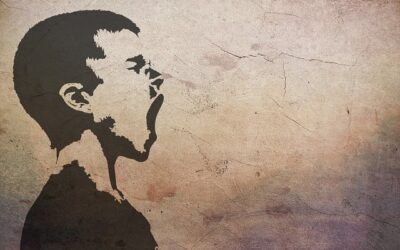Human life is like a quest. At birth, humans have only one identity—human! In the process of growing up, we adopt different traits from our environment. Our conscience unconsciously decides which identity we should mold ourselves into. We cherry-pick from our culture, family, and language to shape who we are. However, when we suddenly move away from our familiar world, or when the world around us experiences rapid change, we may become confused about our identity. We start to investigate the issue and try to reach an equilibrium. Those of us who can identify the issue and strive to fit in with the environment undergo tremendous psychological phenomena because our identity is crucial to us. Even if we change our behavior, our biological features unyieldingly broadcast an identity that we may no longer feel a part of.
I am a Bangladeshi, and the first time I experienced an identity crisis was when I went to the U.S. in 2011. I was young and naïve but had already built a strong Bangladeshi identity that I was proud of. When I started living with a conservative white family with American traditions and values, I became the perfect example of the dictionary definition of Identity Crisis: “personal psychosocial conflict, especially in adolescence, that involves confusion about one’s social role and often a sense of loss of continuity to one’s personality” (Merriam-Webster’s online dictionary, 2017). I lived in Altoona, Iowa, a predominantly white conservative county. After spending a few months immersed in American culture, I went to the bathroom and asked my reflection in the mirror, “Who am I?” My reflection received a bolt out of the blue, jaw dropped in awe. I was not only talking to myself in English but also thinking in English. That inner self within us, which some call conscience and others call soul, was speaking in English. I forced it to speak in Bangla. I failed. I panicked. I had never thought that I would be so depressed just because I could not define my identity for one moment in my life. I realized how crucial identity is for human survival but how ignored it is in our conscious life. I was uprooted from Bangladesh, and in the U.S. I was like an uprooted plant. “To be rooted is perhaps the most important and least recognized need of the human soul” (Ferguson, 1990). We all want to be rooted wherever we are because only then can we identify ourselves in the crowd. Identity is what matters to us the most as human beings.
Finally, I did insert my roots into American soil. I transformed my identity to a new level. The new identity gave me confidence, and I was reassured by certain students in my school, who, upon first meeting me, could not tell that English was my second language. They thought I was an Indian American. I had to reiterate the fact that “I am a Bangladeshi” numerous times throughout my one academic year in the U.S., and still people would call me an Indian. My dark “Bollywood” hairstyle and brown skin proclaimed to the world, “I am an Indian.” Even when I clarified that I am Bangladeshi and that we are a totally different country with a different culture and religion, people would eye my hair and skin color again and say, “…but…but you look like an Indian! Like Raj from ‘The Big Bang Theory’.” This experience resembles that of an Indian couple in one of Lahiri’s stories from Interpreter of Maladies, who, after buying a new house with a Jesus Christ statue in the garden, are asked by a neighbor, “I hope you don’t mind my asking… but I noticed the statue outside, and are you guys Christian? I thought you were Indian” (Lahiri, 2014). From this seemingly universal experience, I lost hope and stopped correcting the Americans. I can change my tongue, I can change my religion, and I can even pretend to believe in American traditions and values, but I absolutely cannot change the color of my skin.
To some, my experience might sound a tad exaggerated. They might say that identity crises do not occur among Bangladeshi people because we live all over the world, contributing to the global labor force. We send back remittances and enrich our country. However, if they are honest, they must agree that these working-class immigrants are deprived of a life outside their work. They lead a machine’s life to feed their loved ones back home. They are already facing an identity crisis, asking themselves whether they are humans or machines. They had to let go of their Bangladeshi culture and language; they too either went or are going through a Bangladeshi identity crisis in a foreign land.
Meanwhile, my identity crisis did not end when I returned to Bangladesh. It restarted. I was criticized by my family for not being able to speak Bangla without English contamination. Strangers—men and women—on the street looked at me like I was some kind of lunatic when I said “hi” to them while passing by. I had to re-engineer my identity back to Bangladeshi mode. Who knows? Maybe someday, I will have to re-engineer myself to some other foreign identity.


0 Comments